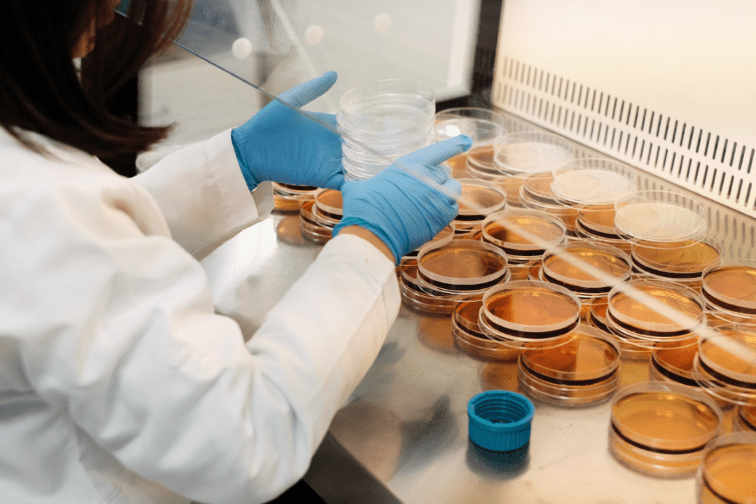Inside laboratories, turning crab shells into food additives
When research and innovation transform sources of pollution into sustainable opportunities! ARIBiotech, funded by the ENI CBC Italy-Tunisia programme, is converting seafood waste and dredging sediments into organic packaging and dietary supplements. But where does this begin? Fish processing industries generate significant waste — heads, tails, fins, scales, bones, etc. — making up to 60% of the fish’s weight. This waste is often discarded at sea, harming ecosystems and harbours. Research shows we can reduce these negative impacts by choosing better dumping sites, finding alternative disposal methods, or turning waste into useful products. ARIBiotech chose the latter by asking themselves: How can we turn marine waste into usable products and how can entrepreneurs benefit from such scientific findings to boost the region’s economy?
We head to the harbour of La Goulette, located 12 km east of Tunis, a key hub for Tunisia’s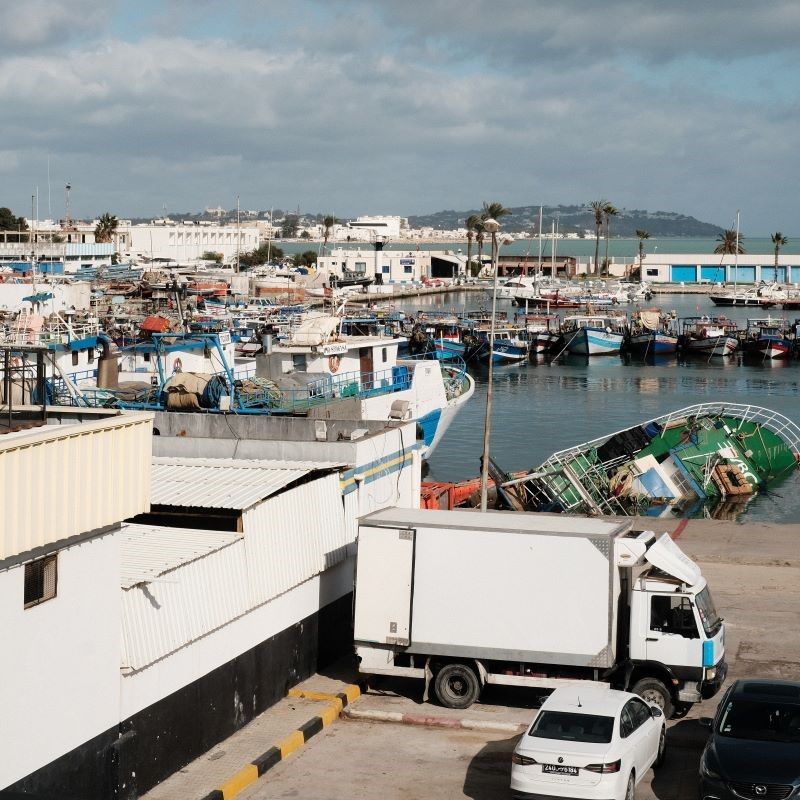 commercial roads and sea networks, and the site of ARIBiotech’s laboratories. Overlooking the fishing port and its boats, we speak with Saloua Sadok, head of the Blue Biotechnology & Aquatic Bioproducts laboratory in Tunis and ARIBiotech project coordinator: “ARIBiotech is the continuation of BIOVECQ, a previous ENPI CBC project which focused on the production of paper from the treatment of algae waste. In the same spirit, we have persisted in our work on waste recovery” Sadok shares.
commercial roads and sea networks, and the site of ARIBiotech’s laboratories. Overlooking the fishing port and its boats, we speak with Saloua Sadok, head of the Blue Biotechnology & Aquatic Bioproducts laboratory in Tunis and ARIBiotech project coordinator: “ARIBiotech is the continuation of BIOVECQ, a previous ENPI CBC project which focused on the production of paper from the treatment of algae waste. In the same spirit, we have persisted in our work on waste recovery” Sadok shares.
Transforming sources of pollution into sustainable opportunities is not new for ARIBiotech’s team of scientists. 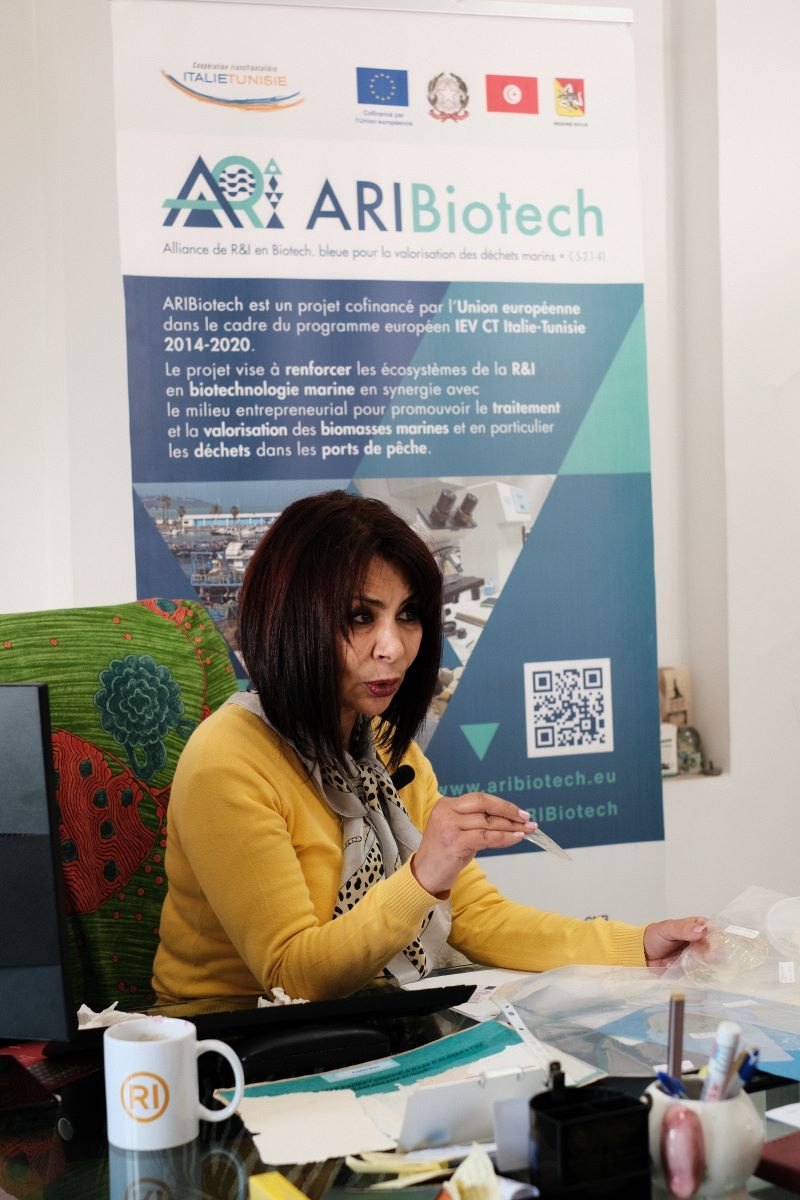 They have made it their life goal to contribute to the preservation of marine ecosystems, and understand the importance of collaboration between laboratories, researchers and small businesses across the region, as pointed out by Sadok “We have been working as a consortium for about ten years and we continue to collaborate with partners from Sicily and Tunisia, fostering cross-border cooperation. Our alliance, which includes start-ups and businesses, aims to create an open innovation space. After the project’s closure – continues Sadok – I hope this alliance will continue. We need to capitalise on the achievements, and we have more plans for the future”.
They have made it their life goal to contribute to the preservation of marine ecosystems, and understand the importance of collaboration between laboratories, researchers and small businesses across the region, as pointed out by Sadok “We have been working as a consortium for about ten years and we continue to collaborate with partners from Sicily and Tunisia, fostering cross-border cooperation. Our alliance, which includes start-ups and businesses, aims to create an open innovation space. After the project’s closure – continues Sadok – I hope this alliance will continue. We need to capitalise on the achievements, and we have more plans for the future”.
A booming fish industry is (also) a source of problems across the Mediterranean. But why is it so crucial to tackle sea waste issues in the Mediterranean? What are the real impacts and consequences of this waste? Over the past decade, fish farming in the Mediterranean, including in Italy and Tunisia, has boomed, leading to significant environmental challenges. Sicily has become a major producer of European sea bass and gilt-head sea bream, while Tunisia’s fisheries remain economically vital, producing 137.470,00 tonnes in 2020. “In Tunisia, the fish processing units are located at the ports, creating seafood waste” Sadok explains, “Additionally, we face issues related to dredging sediments at the bottom of the harbours, which authorities must remove to clear the way for fishing vessels.”
Despite the industry’s growth, there is little research on the environmental impact of fish farming waste, such as uneaten feed, fish faeces, and crab shells, which harm the environment by affecting sea grounds, harbours, and marine seagrass. ARIBiotech is stepping up to fill this knowledge gap by focusing on processing factories located around more than 40 fishing ports (including in Sfax, Kélibia, and Bizerte). The aim of the project is not only to target industries, but also to inspire every actor in the field – from scientist to fishermen – to explore waste recycling methods and to develop innovative solutions for sustainable marine waste management. To make this work, ARIBiotech introduced extensive laboratory analysis in its equipped spaces, led by an experienced team of scientists and researchers who developed three innovative recycling processes for sea waste:
Three different recycling processes born in laboratories
The first method involves extracting chitin — a molecule found in plants and animals — which is then transformed into thin, transparent, edible biofilms used as food preservation coatings for various produce.
The second process uses hydrolysis to convert crab waste into powder, which can be repurposed as food additives for animals and, potentially, humans.
Finally, by processing dredging sediments — a mixture of sand, waste, and algae from the harbour bottoms — the project developed aerogels, porous ultralight materials, to be used for various cosmetic purposes.

The development of these bioproducts is key to creating sustainable industries. By converting waste into resources, ARIBiotech not only reduces environmental impact but also boosts the local economy. It’s a win-win situation: cleaner seas and exciting new products from materials that would otherwise go to waste.
A transnational approach is key to fight common challenges
The cooperation between regions and partners is also essential to the establishment of such projects. As species and marine debris move without any geographical limitation, a national or local approach is often insufficient to counter environmental threats across the Mediterranean. Instead, a more regional approach is recommended to fight this common challenge.
Sharing knowledge and experiences between different actors also facilitates mutual learning and coordination of strategies. One of ARIBiotech’s partners supports in collecting waste and raising awareness among fishermen. “The agency ensures the daily elimination of waste, particularly through dredging operations, by fishermen, and by processing industries” says Hadhami Mohamed, representative for the APIP agency (Agence des Ports et des Installations de Pêche). “This project has enabled the implementation of various actions, notably raising awareness at fishing ports to promote the valorisation of marine waste and helping different actors better understand this issue.”
Thanks to this process, another important outcome saw the light with ARIBiotech: the “WHITE BOOK“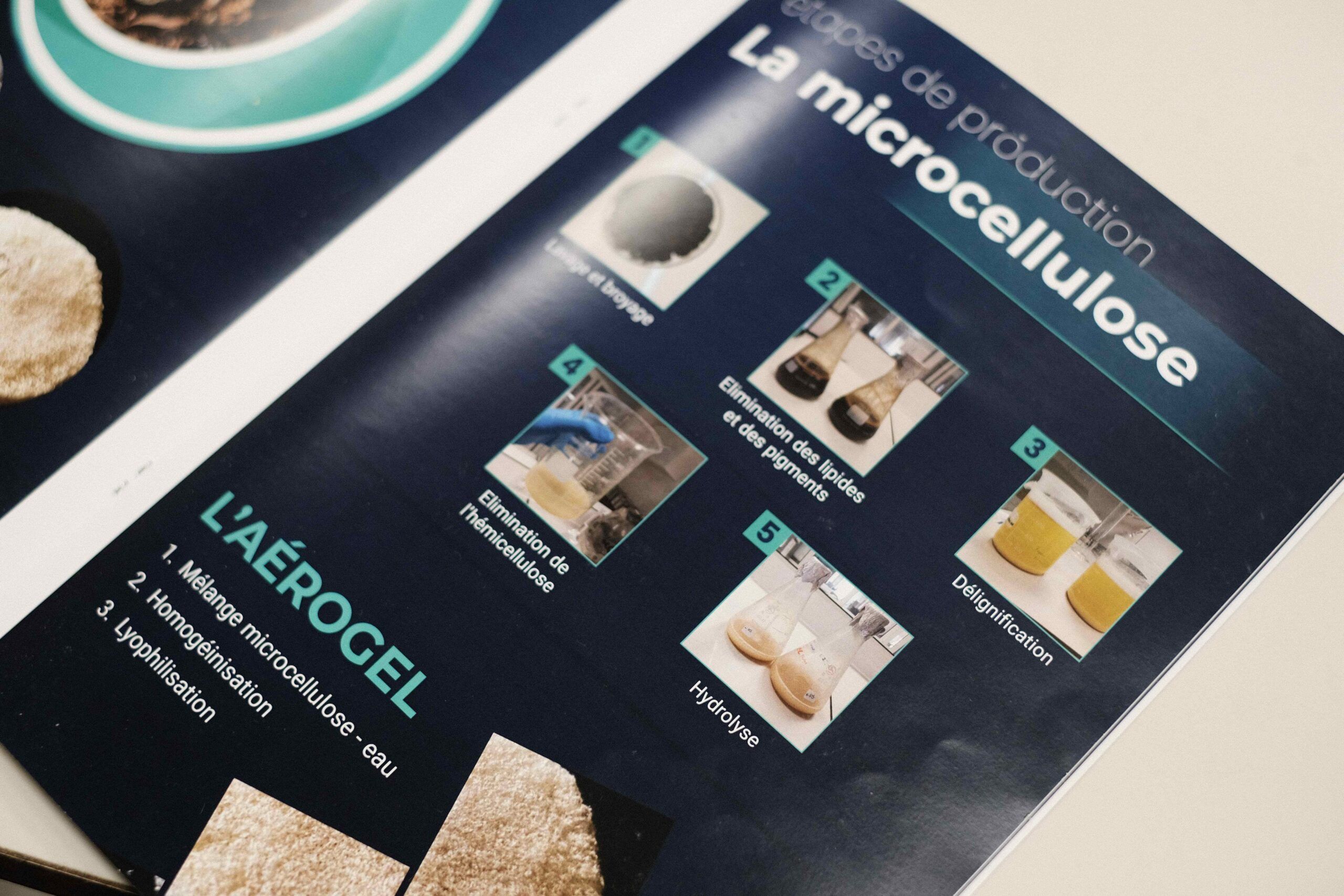 which led the way in commercialising research findings by also taking into account administrative requirements and health regulations for the creation of bioproducts. As a result, it enabled pilot startups to act and spread the positive and innovative impact of the project.
which led the way in commercialising research findings by also taking into account administrative requirements and health regulations for the creation of bioproducts. As a result, it enabled pilot startups to act and spread the positive and innovative impact of the project.
This butterfly effect is what allowed another project “BLEU ADAPT” to take on the blue crab invasion in Tunisia. By training local fishermen and promoting blue crab products, the project has sparked the creation of over 50 new companies. Now, these companies are processing and exporting various blue crab products to places like Indonesia, South Korea, and Vietnam. This has not only improved the incomes of small fishermen but also opened new uses for blue crab in animal feed, cosmetics, and more.
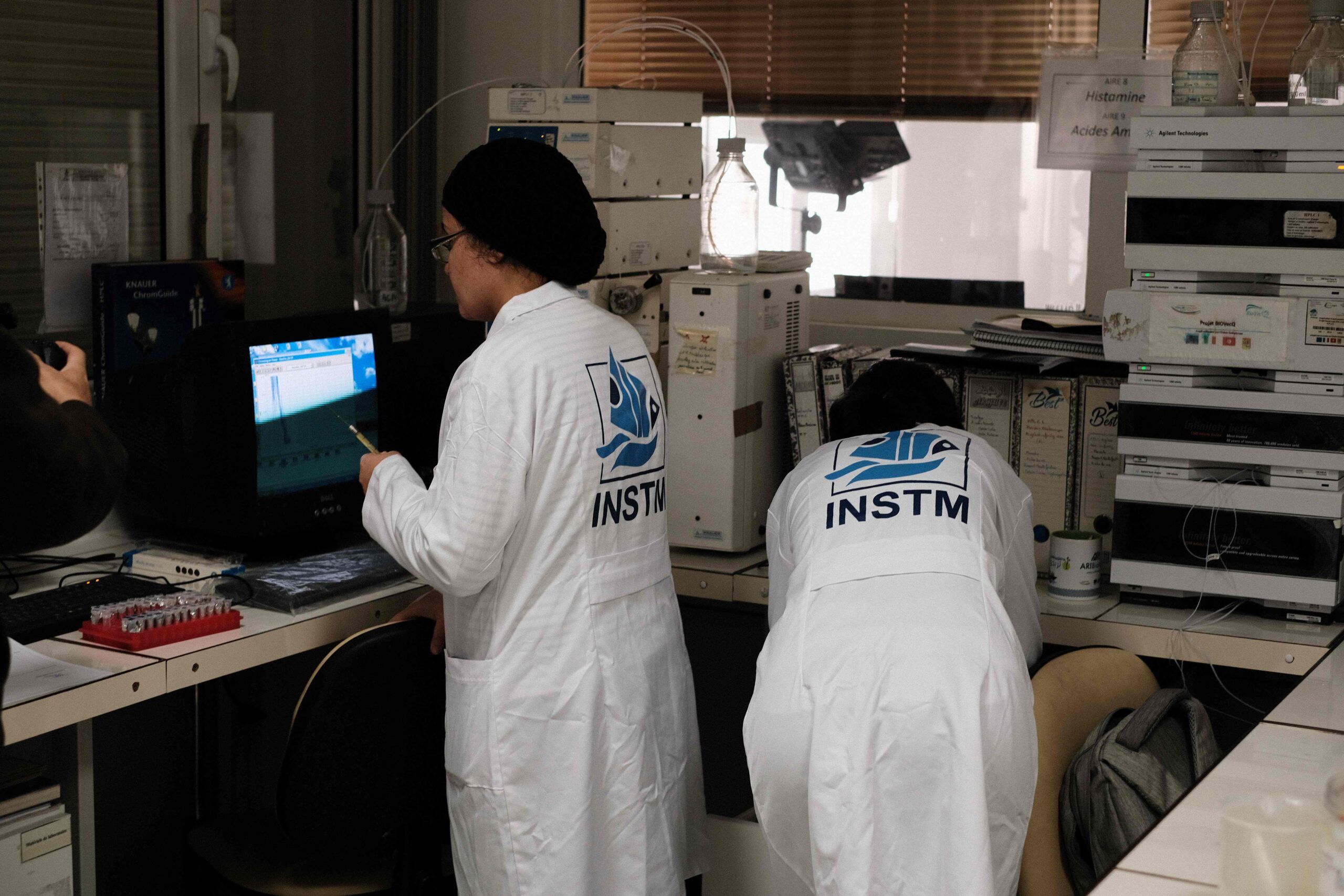 ARIBiotech and its partner projects and startups have showed how important joint efforts and cooperation can be in solving environmental problems. The project is now a shining example for the entire Mediterranean on how to build a resilient circular system through international collaboration. Exploiting marine waste, whether through direct use or by extracting dredging sediments, is also a promising step toward the sustainable use of sea resources and the consequent economic growth.
ARIBiotech and its partner projects and startups have showed how important joint efforts and cooperation can be in solving environmental problems. The project is now a shining example for the entire Mediterranean on how to build a resilient circular system through international collaboration. Exploiting marine waste, whether through direct use or by extracting dredging sediments, is also a promising step toward the sustainable use of sea resources and the consequent economic growth.
Thanks to these advancements, the public will gain significantly from the creation of new bioproducts which tend to be safer and healthier in their use. Projects like ARIBiotech are leaders in such innovation, not only expanding waste treatment options but also inspiring policymakers to support innovations in “blue biotechnology”. The development of joint policies will also lead to an improved water management which means a brighter future for our oceans — a vital lifeline for the survival of our planet.
